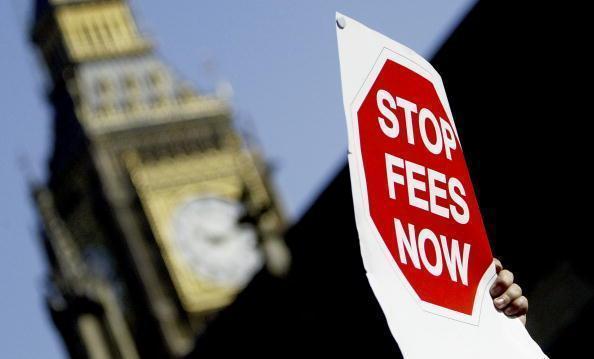Universities strongly condemned for further raising tuition fees, before legislation allowing them to is passed
Lib Dem MP leads criticism and says: 'This is disgraceful arrogance from some universities'

Your support helps us to tell the story
From reproductive rights to climate change to Big Tech, The Independent is on the ground when the story is developing. Whether it's investigating the financials of Elon Musk's pro-Trump PAC or producing our latest documentary, 'The A Word', which shines a light on the American women fighting for reproductive rights, we know how important it is to parse out the facts from the messaging.
At such a critical moment in US history, we need reporters on the ground. Your donation allows us to keep sending journalists to speak to both sides of the story.
The Independent is trusted by Americans across the entire political spectrum. And unlike many other quality news outlets, we choose not to lock Americans out of our reporting and analysis with paywalls. We believe quality journalism should be available to everyone, paid for by those who can afford it.
Your support makes all the difference.Universities across England are being criticised for already advertising higher tuition fees past the current £9,000 a year limit, even though government plans allowing them to do so have not yet been passed.
For the 2017/18 academic year, the websites for Durham, Kent, and Royal Holloway have listed yearly undergraduate fees at £9,250, while Bishop Grosseteste in Lincoln has also followed suit.
The news comes just a day after education activists descended on Parliament urging MPs to vote against a controversial Higher Education and Research Bill - which would allow universities to further raise their fees - calling it “maybe the worst set of marketising reforms in the history of British university education.”
The Bill is the first of its kind for a decade, and includes some of the biggest higher education reforms in recent years. Published by the Government in May - after being set out in the Queen’s Speech - it will enact the reforms in the recent white paper, including the Teaching Excellence Framework (TEF).
Students and the wider higher education community have been arguing against proposals to link teaching quality with an increase in fees, a move which caused mass outrage with the sector disputing that students are already being saddled with too much debt, even more than their anglophone counterparts.
Although some of the university sites say the new fees are “subject to government confirmation” and “inflationary changes,” politicians and leading figures in the sector have blasted institutions for raising costs before MPs have voted on legislation allowing them up up fees.
Education spokesperson for the Liberal Democrats, John Pugh, said it was “disgraceful arrogance” from some universities, adding: “This Bill is not a done deal and many people have real covers about the plan to increase fees.
“The real question is whether the Government is giving these institutions the green light to advertise higher fees. They’ve not even shown their plans for linking fee rises to Parliament, so why are they giving universities the impression they will pass their teaching quality assessment?”
The University and College Union (UCU) also strongly condemned the universities, and said institutions making the move before legislation has passed would “do little to halt criticism” that universities are just “seeking to extract as much cash as they can from students.”
Having already called for the controversial Bill to be scrapped following the vote to leave the EU, and the “ministerial merry-go-round” which has followed, UCU general secretary, Sally Hunt, said: “Universities advertising increased fees before the law has even been changed is just another blight on the sorry debacle that is the Government’s plan for higher education.
“We have the difficulties of Brexit to deal with at the moment, and the transition of higher education policy from the old Business Department into the Department for Education. The time surely has now come for the Government to stop the Bill and think again.
“Those universities foolish enough to advertise higher fees will be doing nothing to quell concerns from students and parents that they are simply after as much cash as they can get.”
Sorana Vieru, vice president of higher education with the National Union of Students (NUS), said the national campaigner was “disappointed” at the news, adding how the Tories’ current fees system is “a failed experiment” which has “not driven up quality or sustainably funded institutions as promised.”
She continued: “It has only piled more debt onto students. We are disappointed to see some universities are pushing ahead with these changes rather than fighting back against the reforms and a funding system that clearly doesn’t suit the needs of the sector and students.
“A further fee rise will have a damaging impact on students and it is frustrating to learn universities were lobbying the minister for the fee rise before the reforms were published. We believe the funding system for higher education needs an overhaul, with students’ interests prioritised.”
The Government highlighted how the uplift was announced with the white paper in May, which is still subject to usual parliamentary scrutiny, but said universities are allowed to inform students applying a year in advance of any planned changes to fees.
A Government spokesperson said: “The ability to maintain fees in line with inflation has been in place since 2004, and is subject to regulations. This is not part of the Bill. The TEF will allow universities to maintain fees in line with inflation only if they meet a quality bar, as set out in the recent white paper.”
Join our commenting forum
Join thought-provoking conversations, follow other Independent readers and see their replies
Comments